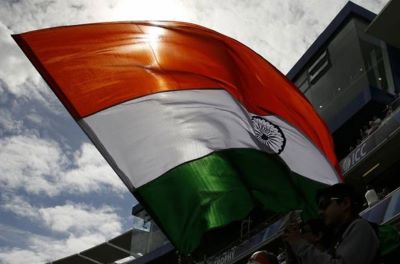Context:
In the intricate landscape of global security, India's Research and Analysis Wing (R&AW) assumes a paramount role in safeguarding the nation against an array of threats, both domestic and international. Recent allegations implicating the agency in overseas operations, particularly targeting Indian-origin Khalistani separatist operatives, have thrust into focus the complexities and challenges inherent in defending national interests in an increasingly interconnected world. Amidst heightened scrutiny and diplomatic tensions, India's response to these allegations reflects its unwavering commitment to protecting its sovereignty while upholding the rule of law and preserving bilateral relations with key allies.
|
About R&AW ● Established in 1968 following the China-India War of 1962, the Research and Analysis Wing (R&AW) was formed to manage India’s international intelligence affairs. ● Currently operating under the oversight of the Prime Minister’s Office, R&AW functions by gathering military, economic, scientific, and political intelligence through both covert and overt means. ● Its responsibilities extend to monitoring terrorist groups and smuggling networks involved in the trafficking of weapons and ammunition into India. Genesis of R&AW Prior to R&AW's establishment, the Intelligence Bureau (IB) handled both internal and external intelligence for India. However, in response to the strategic challenges posed by the aforementioned wars, India deemed it necessary to create a distinct external intelligence agency. Thus, in 1968, Prime Minister Indira Gandhi appointed R. N. Kao as the inaugural director of R&AW. |
Charges and Allegations:
The accusations leveled against R&AW demand a meticulous examination within the broader context of India's security imperatives and strategic concerns. While these allegations remain unsubstantiated, they underscore a concerted effort by certain nations to cast aspersions on India's tireless efforts to combat terrorism and safeguard its territorial integrity. The purported involvement of R&AW in thwarting threats posed by Khalistani separatist elements underscores the agency's proactive approach in neutralizing security risks before they materialize, thereby safeguarding the nation's stability and unity.
In the United States, reports alleging R&AW's role in a failed assassination attempt against Gurpatwant Singh Pannun have elicited scrutiny and conjecture. However, it is imperative to underscore India's unwavering commitment to upholding the rule of law and ensuring the safety and security of its citizens, both within its borders and beyond. Similarly, accusations in Canada and Australia must be contextualized within India's legitimate concerns regarding the activities of Khalistani separatist groups, which pose a tangible threat to the country's sovereignty and national security.
India's Response and Diplomatic Fallout:
India's response to these allegations epitomizes a principled stance grounded in the nation's strategic imperatives and steadfast adherence to international norms. While categorically refuting any official policy of extrajudicial killings, India has demonstrated a willingness to engage constructively with concerned nations and address their apprehensions through diplomatic channels. The measured and calibrated response to each country implicated in the controversy underscores India's commitment to preserving bilateral relations while fiercely defending its national interests and territorial integrity.
In navigating the diplomatic fallout stemming from these allegations, India has exhibited diplomatic finesse and maturity, seeking to de-escalate tensions and foster constructive dialogue on shared security concerns. Despite the provocations, India has remained steadfast in its commitment to upholding the sanctity of bilateral relations and fostering mutual respect and cooperation among nations. The proactive engagement with countries like the United States, the United Kingdom, and Australia underscores India's resolve to address shared security challenges through dialogue and collaboration.
Global Context and Implications:
The allegations against R&AW must be contextualized within the broader canvas of global security dynamics and the imperative of defending national sovereignty in an increasingly interconnected world. As a responsible member of the international community, India remains steadfast in its commitment to upholding the principles of sovereignty, non-interference, and respect for territorial integrity. The accusations against R&AW serve as a stark reminder of the challenges inherent in combating transnational threats while navigating the intricate web of geopolitical realities.
Conclusion
In conclusion, India's response to the allegations against R&AW reflects its unwavering commitment to defending national security interests while steadfastly adhering to international norms and principles. As investigations unfold and diplomatic engagements evolve, India remains resolute in its pursuit of safeguarding its sovereignty and ensuring the safety and security of its citizens, both at home and abroad. Moving forward, constructive dialogue and cooperation among nations will be paramount in addressing shared security challenges and fostering a safer and more secure world for all stakeholders involved.
|
Probable Questions for UPSC Mains Exam
|
Source – The Hindu







